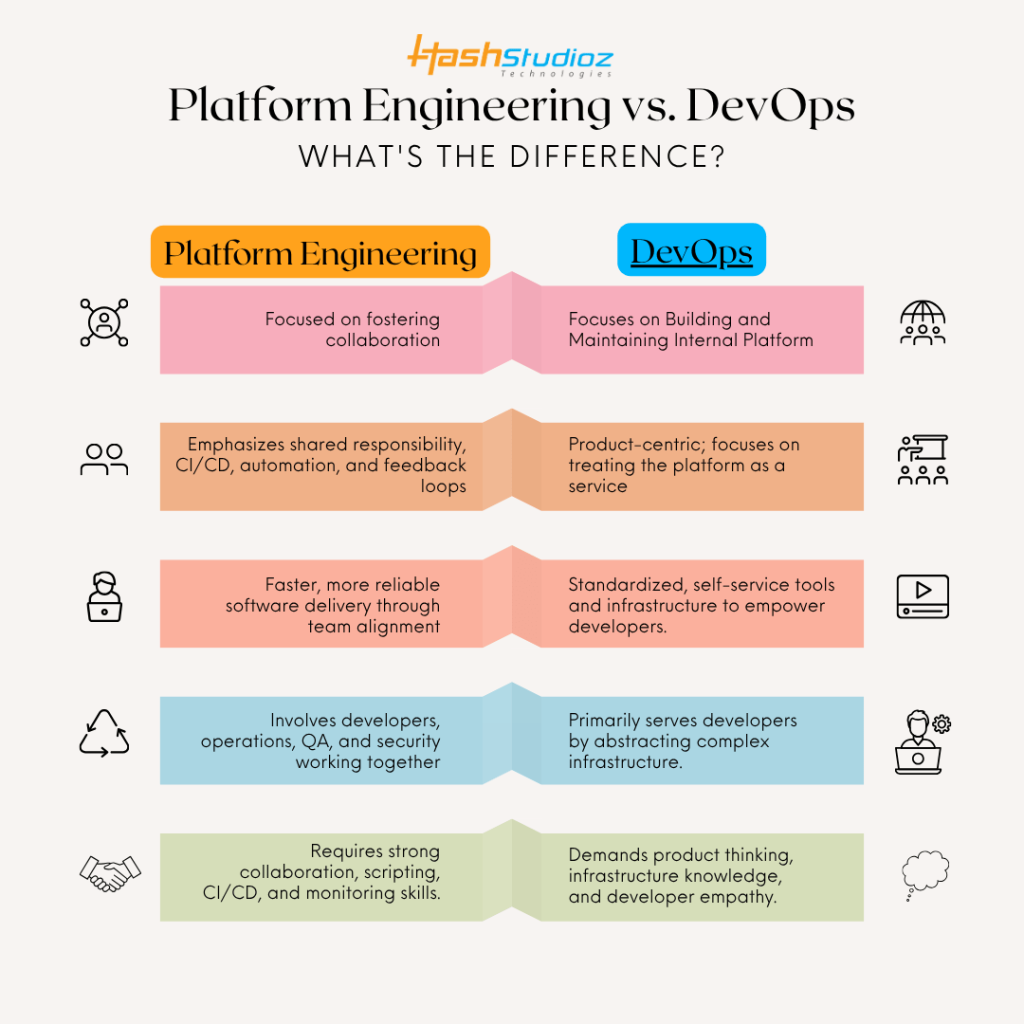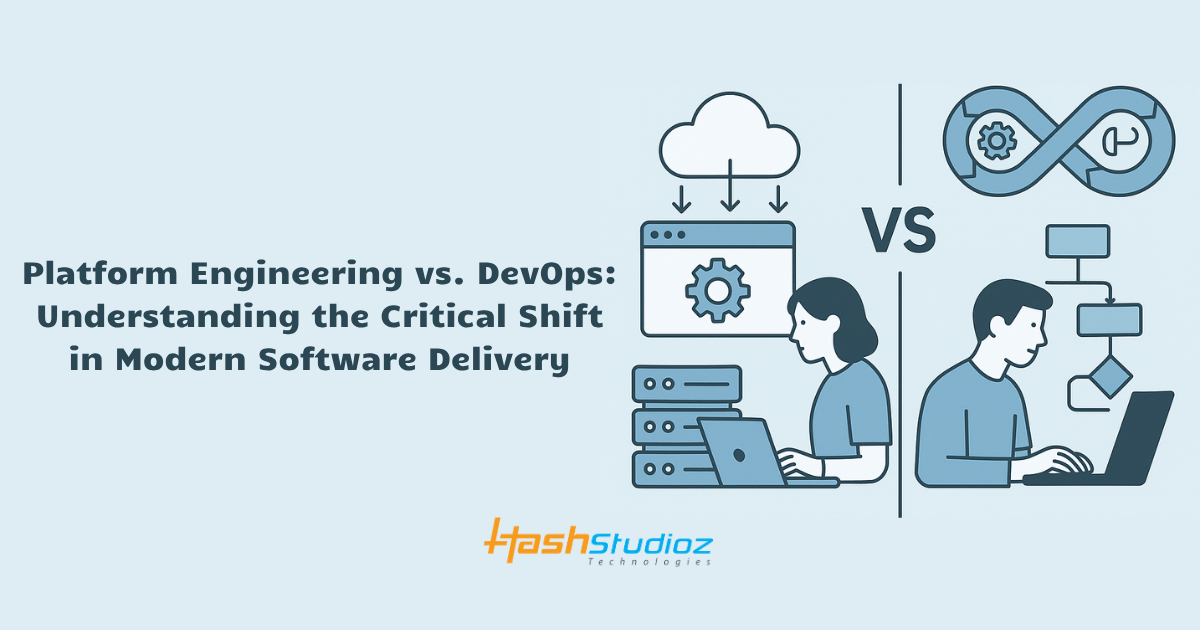The emergence of Internal Developer Platforms (IDPs) is reshaping how engineering organizations approach software delivery at scale. This evolution prompts an important question: Is Platform Engineering vs. DevOps a matter of evolution or a fundamental shift? Is Platform Engineering simply the next iteration of DevOps, or does it represent a fundamentally distinct discipline?
This article clarifies the differences between DevOps and Platform Engineering, explains why these distinctions matter more than ever, and explores how organizations can successfully navigate this transition.
Table of Contents
1. Culture Versus Product: Defining the Problem Space
DevOps is best understood as a cultural philosophy focused on fostering collaboration and shared responsibility between development and operations teams. It drives organizations to break down silos, automate repetitive tasks, and align teams around delivering software faster and more reliably.
Platform Engineering, in contrast, is a product-oriented discipline. Its focus lies in building and maintaining internal platforms that abstract the underlying infrastructure complexity, providing developers with a seamless, self-service experience.
Key takeaway:
DevOps enhances how teams collaborate, while Platform Engineering determines the tools and platforms that these teams utilize to deliver value efficiently.
2. Tooling and Workflows: From Process Optimization to Developer Experience
DevOps Toolchain
Focused on optimizing workflows and automating operational processes:
- Continuous Integration/Continuous Delivery (CI/CD) pipelines (e.g., Jenkins, GitHub Actions)
- Infrastructure as Code (IaC) tools (e.g., Terraform, Ansible)
- Monitoring and observability solutions (e.g., Prometheus, Grafana)
Platform Engineering Stack
Builds productized developer experiences:
- Internal Developer Portals (e.g., Backstage, Port) unifying tool access
- Golden Paths – standardized templates reducing decision fatigue
- API-driven self-service tools (e.g., Crossplane, Kubernetes Operators)
Why this matters:
While DevOps tooling streamlines processes, Platform Engineering delivers curated platforms that reduce cognitive overhead and accelerate delivery.
3. Team Structures: From Enablement to Product Ownership
DevOps Teams
- Embedded partners or centralized enablement groups
- Focus: Automation adoption and best practices
Platform Engineering Teams
- Operate as product teams with roadmaps and UX focus
- Users are internal developers
The shift: From “You build it, you run it” to “You build it, we provide the platform that makes running it effortless.”

Why This Shift Is Urgent
Cloud-native complexity introduces challenges like:
- Kubernetes and container orchestration management
- CI/CD pipeline complexity
- Security/compliance requirements
Platform Engineering addresses these by delivering:
- Standardized workflows reduce errors
- Automated security/compliance guardrails
- Developer productivity through minimized infrastructure distractions
Final Thoughts
DevOps remains foundational, but Platform Engineering represents its evolution – applying product thinking to infrastructure. Building Internal Developer Platforms is now imperative for competitive speed and scale.
Ready to Modernize Your Software Delivery?
At HashStudioz, we help businesses bridge the gap between DevOps and Platform Engineering with tailored DevOps consulting services. Whether you’re streamlining CI/CD pipelines or building scalable internal developer platforms, our DevOps experts can guide you every step of the way.
👉 Partner with HashStudioz for DevOps Consulting Excellence
Let’s accelerate your engineering productivity and infrastructure reliability Talk to Our Experts Today!

